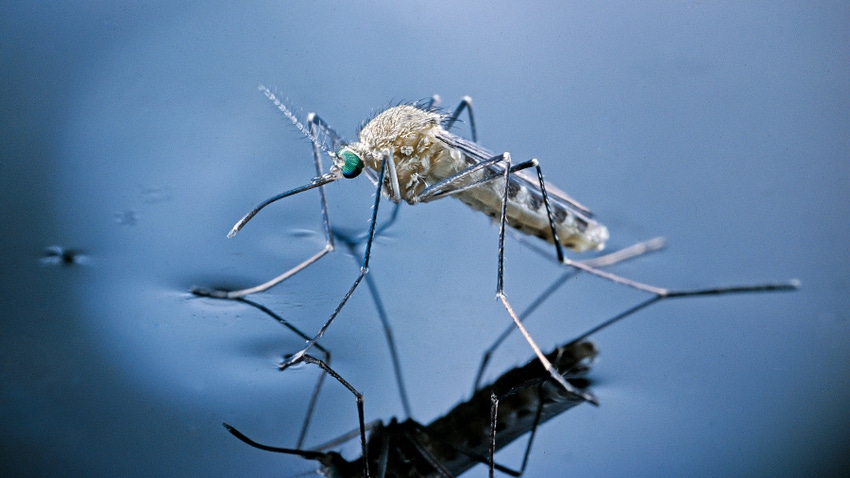July 12, 2023

The state recently confirmed eastern equine encephalitis in mosquitoes from Bay County, the first detection of the disease in Michigan this year.
"This detection shows the virus is present in the environment and highlights the need to take precautions,” state veterinarian Nora Wineland said in a statement.
“Protect animals against mosquitoes by placing livestock in a barn under fans during peak mosquito activity [from dusk to dawn], eliminating standing water on one’s property, using an insect repellant on animals that is approved for the species, and contacting a veterinarian to vaccinate horses against EEE and other mosquito-borne diseases.
"Also, please contact a veterinarian if a horse shows signs of the illness — mild fever and stumbling, which can progress to being down and struggling to stand."
EEE is a zoonotic, viral disease transmitted through the bites of mosquitoes to both animals and people. It is typically seen in late summer to early fall each year in Michigan. The disease is not spread by horse-to-horse or horse-to-human contact. It is one of the most dangerous mosquito-borne diseases in the U.S. with a 90% fatality rate among horses that become ill and a 33% fatality rate among humans who become ill.
“EEE is also a reportable animal disease,” Wineland said. “If the disease is suspected or confirmed in a domestic animal, please contact the Michigan Department of Agriculture and Rural Development at 800-292-3939 to discuss funding for testing or to report the disease. Both testing animals and reporting the results is vital for confirming the presence of the disease, monitoring for change, and assessing outreach and abatement needs.”
In 2022, there were three detections of EEE in domestic animals, all were horses.
For more information about EEE, visit michigan.gov/eee.
Source: MDARD
You May Also Like




